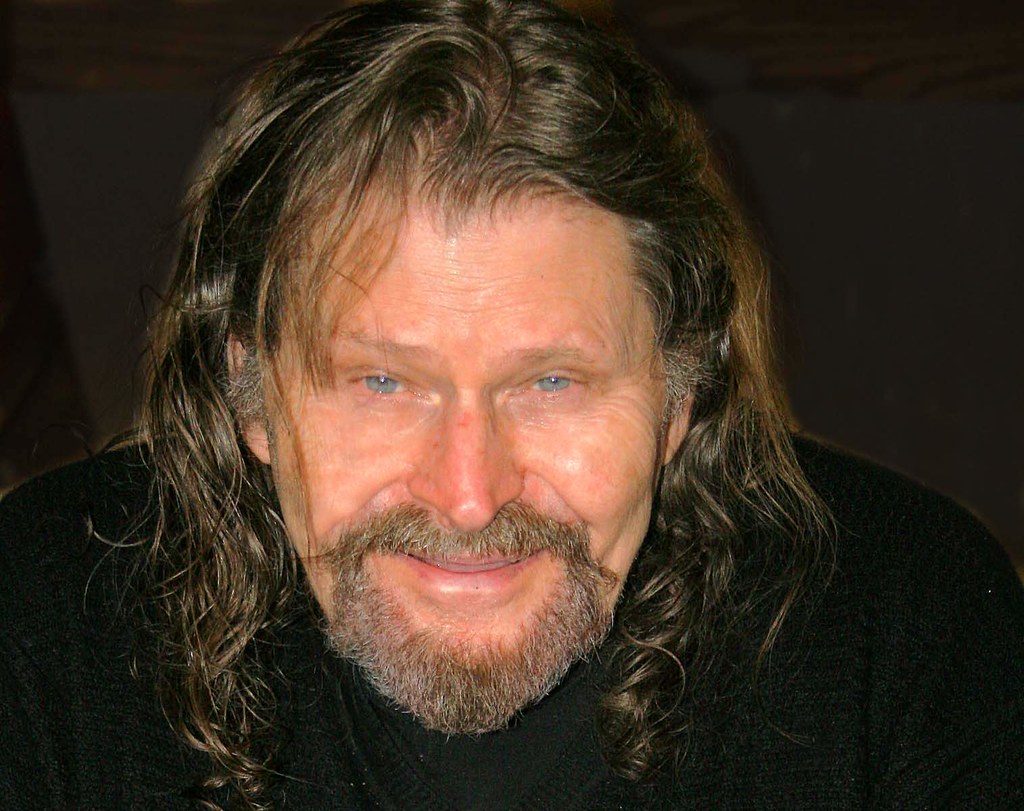
The passing of Bruce Glover at 92 on March 12, 2025, marked the end of an era for one of Hollywood’s most distinctive character actors. Known for his piercing gaze and innate ability to embody tough, often villainous roles, Glover carved out a remarkable career spanning decades, leaving an indelible mark on both the big and small screens. From his iconic portrayal of the sinister Mr. Wint in the James Bond classic “Diamonds Are Forever” to his powerful performance as Duffy in Roman Polanski’s “Chinatown,” Glover consistently brought unique intensity and depth to every character.
His lengthy career was not merely defined by his on-screen presence but by his passion for the craft. Evident in his long-standing commitment to teaching acting, he nurtured talent and shared insights, proving his dedication extended far beyond the spotlight. As tributes pour in, it’s clear Bruce Glover’s contributions resonate deeply, reflecting a life lived fully in pursuit of authentic storytelling and performance.
This retrospective delves into the multifaceted career of Bruce Glover, exploring the key moments and roles that defined his legacy. We’ll examine his early life and unexpected entry into acting, his pivotal military service, and the memorable characters he brought to life. Through an exploration of his work, both on screen and as a mentor, we provide an in-depth look at a true Hollywood veteran whose influence will continue to be felt for generations.
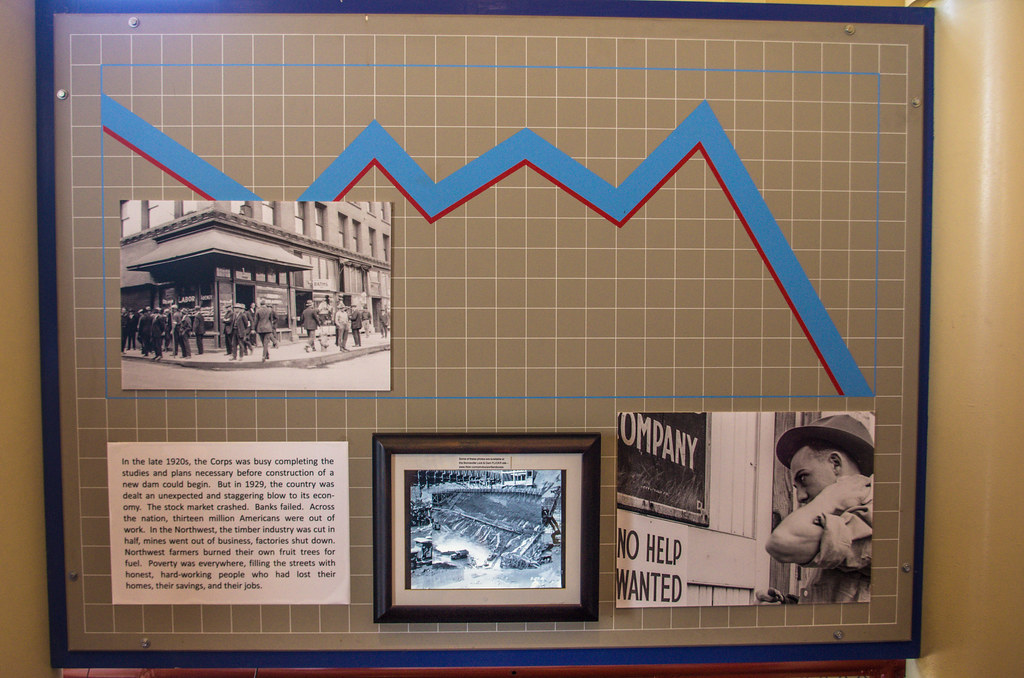
1. **The Formative Years: Chicago Roots and Early Experiences**Bruce Herbert Glover was born on May 2, 1932, in Chicago, Illinois. His parents were Eva Elvira (née Hedstrom) and Herbert Homan Glover, and his lineage included English, Czech, and Swedish descent. This rich tapestry perhaps contributed to the nuanced complexity he brought to his diverse range of roles.
Growing up during the severe economic hardships of the Great Depression, Glover’s childhood instilled a strong work ethic. He entered the workforce at just six, making a modest 60 cents weekly delivering groceries. This early exposure, as he recounted to The Original Van Gogh’s Ear Anthology website in 2019, began when a store owner found it “cute” and offered him a job. He described it as “the beginning of the seeking of work,” a pursuit defining much of his life.
Beyond his early entrepreneurial spirit, Glover developed a profound love for movies from a young age. His first taste of performance came remarkably early, at age three, during a church pageant. His line, “No room at the inn,” delivered with such expressive skill it elicited laughter, was repeated several times. “I had an instinct for it and didn’t know I did,” Glover told the podcast “James Bond Radio” in 2015.
Read more about: The Car You Drive Is a Social Statement: Decoding Your Identity and Impact on the Road

2. **From Army Service to the Stage: An Unexpected Path to Acting**Glover’s path to a full-time acting career was not direct, punctuated by significant life experiences. After high school, he pursued athletics, playing football for Wright Junior College and even a semi-pro team. However, destiny, in its often-unforeseen ways, had other plans.
In 1953, his life took a stark turn when he was drafted into the U.S. Army during the Korean War. He served for two years, from 1953 to 1955, including a six-month deployment in Korea. This military service was a defining experience, placing him in challenging circumstances. The discipline and harsh realities of wartime undoubtedly contributed to the gravitas and authenticity he later brought to his characters.
Upon his return, Glover faced another hurdle: a battle with malaria. This illness, a consequence of his service, sidelined his football career and prevented a scholarship. It was during this period of transition, while picking up additional college credits, that he stumbled upon an advertisement for a play. He decided to try out, launching his decades-long career. This serendipitous turn highlights how life’s detours can lead to its most fulfilling paths.
Despite “never taken an acting class,” as he stated on his Yelp page, Glover was cast as the lead for the Tennessee Williams play “Camino Real” in 1955. His natural talent was so pronounced he ended up “coaching the other actors,” a clear indication of his innate understanding of performance. This early experience not only solidified his commitment but also unveiled his aptitude for mentorship.
Read more about: Sir Michael Gambon, the Distinguished Actor Who Enchanted Audiences as Dumbledore, Dies at 82: A Legacy of Stage and Screen Mastery
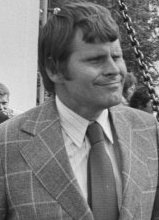
3. **The Iconic Mr. Wint: Crafting a Memorable Bond Villain**Among Bruce Glover’s extensive filmography, his portrayal of the assassin Mr. Wint in the 1971 James Bond film “Diamonds Are Forever” remains his most iconic role. Paired with jazz musician Putter Smith as Mr. Kidd, Glover helped create one of the most memorably sinister and unsettling villainous duos in the Bond franchise. Their calm demeanor, juxtaposed with ruthless efficiency, made them a chilling presence.
Glover’s approach to Mr. Wint was distinctively his own. He recalled an unusual method for preparing, sharing with Entertainment Weekly that he asked director Guy Hamilton not to tell him which of the two assassins he would play. This deliberate uncertainty allowed him to remain open to character development, bringing a fresh spontaneity to his performance. He aimed to “connect with something live,” emphasizing an organic, intuitive acting process.
His collaboration with Sean Connery led to one of the film’s most talked-about, darkly comedic moments. Mr. Wint’s demise, where James Bond straps a bomb between his legs and throws him off a ship, concluded with a line Glover himself credits for much of its impact. He recounted to The Original Van Gogh’s Ear Anthology website, “The final moment in the film where Sean Connery does that rude thing pushing the hooha up my yaha and giving that character his final great sexual moment is the biggest laugh in the movie.” This quote encapsulates the unique, unsettling humor Glover brought to the character.
The role earned Glover widespread recognition and praise from other Bond actors like Sir Roger Moore. His careful crafting of the character’s unsettling affectations, from distinct speaking pattern to menacing calm, demonstrated a profound understanding of villainy. Mr. Wint, alongside Mr. Kidd, became a benchmark for memorable henchmen, thanks to Glover’s meticulous and unique interpretation.

4. **A Prolific Presence: His Vast Television Career**Before and concurrently with his notable film career, Bruce Glover was a ubiquitous presence on American television. He made countless guest appearances across a wide spectrum of popular shows, honing his craft and allowing him to portray diverse characters week after week. His ability to quickly adapt and leave a lasting impression made him a valuable asset to television producers.
Glover’s television debut began as early as the late 1950s, escalating in the 1960s and 70s. He appeared in classics such as “My Favorite Martian” (1963), “Perry Mason: The Case of the Golden Girls” (1965), “The Rat Patrol” (1966), and “Hawk” (1966). These early roles often cast him as a supporting character, building the foundation for his tough-guy persona. His “Perry Mason” appearance was among the pictures shared by his son, Crispin Glover, highlighting its significance.
The 1970s saw Glover’s television career flourish, with appearances in iconic shows like “Gunsmoke” (1969), “Adam-12” (1969), where he played a motorcycle gang leader, and “Mission: Impossible” (1970). He also featured in “Bearcats!” (1971), “Police Story” (1977), “The Feather & Father Gang” (1977), and “Barney Miller” (1978). His presence added grit and realism to these dramas and crime shows, often playing integral characters.
Even through the 1980s and 1990s, Glover remained a familiar face on television, securing more guest spots on popular programs including “Hart to Hart” (1981), “T. J. Hooker” (1982), “The A-Team” (1983), and “Murder, She Wrote” (1989). His consistent work across multiple decades and genres underscores his reliability and enduring appeal as a character actor. This sheer volume of television credits illustrates the breadth and depth of his commitment to acting.
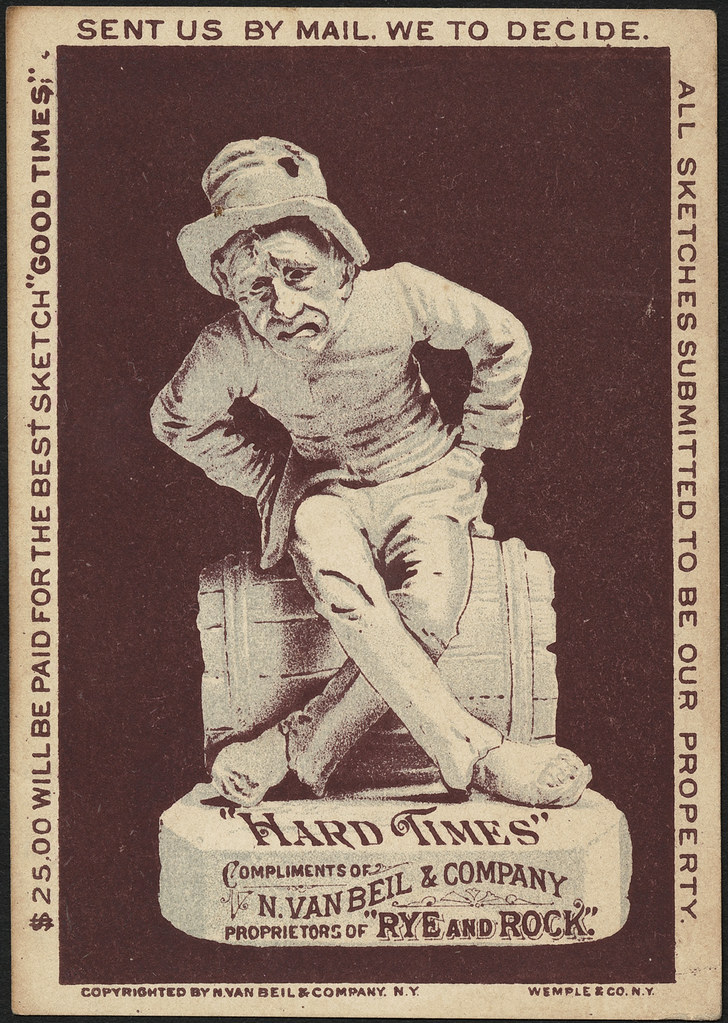
5. **The Art of Character: Mastering the Tough-Guy Persona**Bruce Glover became synonymous with the “tough-guy” persona, a character type he expertly mastered and brought to life with nuance. His distinctive look and voice, often gruff yet capable of conveying subtle menace or vulnerability, made him a natural fit for roles requiring an edge. Whether playing a villain, a redneck thug, or an intimidating enforcer, Glover consistently delivered authentic and impactful performances, never resorting to one-dimensional portrayals.
His ability to embody the darker side of human nature was evident early. In “Bless the Beasts and Children” (1971), he skillfully portrayed a redneck thug harassing well-meaning teenagers, showcasing his capacity for creating truly unlikable yet believable characters. Later, in “Hard Times” (1975), he was seen leaning on hustler James Coburn to repay debts, projecting a quiet but firm authority characteristic of his best tough-guy performances. These roles were not just about physical intimidation but also about psychological presence, which Glover excelled at conveying.
What set Glover apart was his capacity to add layers to these roles. Even when playing antagonists, there was often an underlying intelligence or specific motivation that made his characters compelling. He resisted making them purely evil, instead imbuing them with pragmatism or a twisted sense of purpose. This commitment to character depth allowed him to stand out in a field often crowded with less distinguished performers.

6. **The Teacher and Mentor: Bruce Glover’s Passion for Acting Instruction**Beyond his formidable acting career, Bruce Glover harbored a profound passion for teaching, a commitment that ran parallel to his work in front of the camera. He began sharing his knowledge and insights with aspiring actors as early as the 1950s, long before he achieved widespread fame. This dedication to education highlights his belief in the craft and his desire to cultivate talent in others, a generosity of spirit defining his legacy as a mentor.
In the 1970s, Glover expanded his teaching endeavors by conducting acting classes with “The Indian Actors Workshops” and establishing various acting studios around Los Angeles, California. These workshops provided a vital platform for aspiring performers to learn from a seasoned professional. His hands-on approach and deep understanding of human behavior, honed through years of diverse roles, offered students invaluable guidance.
His commitment to providing a space for learning was so strong that in the 1990s, Glover added an additional level to his West Los Angeles residence specifically to accommodate an acting studio. This physical manifestation of his dedication underscores how central teaching was to his life. It wasn’t just a side project; it was an integral part of his professional identity, allowing him to give back to the community.
Glover eloquently articulated his passion on his Yelp page, stating it was “his passion to help actors honor their unique creativity and express their truth.” This philosophy went beyond mere technique, focusing on the deeper emotional and psychological aspects of performance. Director Donald Farmer, among others, paid tribute to Glover on Facebook, remembering him as “a tremendous actor but a wonderful acting teacher and Facebook friend.” This enduring sentiment solidifies Bruce Glover’s lasting impact as a beloved and respected instructor.

7. **Continuing the Cinematic Journey: Later Filmography (1980s-1990s)**As Bruce Glover entered the latter half of his storied career, his presence in cinema continued to be a testament to his enduring talent and the industry’s demand for his distinctive characterizations. While the 1970s marked a period of explosive recognition with films like “Diamonds Are Forever” and “Chinatown,” the subsequent decades saw him embrace a variety of roles that further cemented his legacy as a reliable and impactful performer, often in projects that leaned into genre filmmaking.
Throughout the 1980s and 1990s, Glover lent his gravitas to films that captivated audiences with their blend of horror, action, and suspense. Notably, he appeared in the 1988 supernatural western “Ghost Town,” where his presence as a ‘Dealer’ added a layer of gritty realism to the spectral narrative. This role, among others, demonstrated his ability to inhabit diverse cinematic worlds, from the gritty streets of neo-noir to the eerie landscapes of the supernatural, always making his characters feel grounded and authentic.
His filmography in the 90s included appearances in the horror-comedy “Popcorn” (1991) as Vernon and the fantasy horror sequel “Warlock: The Armageddon” (1993) as Ted Ellison. These roles often capitalized on his signature tough-guy persona, but Glover consistently found ways to inject nuance and a subtle menace that prevented his performances from becoming formulaic. His commitment to the craft meant that even supporting roles were delivered with a conviction that left a lasting impression, showcasing a versatile actor who understood the power of a well-executed character.

8. **A New Millennium on Screen: Roles in the 2000s and Beyond**The turn of the millennium did not slow Bruce Glover’s prolific output, as he continued to grace the big screen with memorable performances well into his later years. His career longevity was remarkable, extending into his early 80s, providing a unique opportunity for new generations of filmmakers and audiences to experience his singular talent. This period also saw him engage in deeply personal projects, particularly those involving his son, Crispin Glover.
One of his notable roles in the early 2000s was in Terry Zwigoff’s critically acclaimed 2001 drama “Ghost World,” where he played ‘Feldman the Wheel Chair Guy.’ Sharing the screen with talents like Steve Buscemi and a young Scarlett Johansson, Glover’s performance added a distinctive touch to the film’s ensemble, proving he could still deliver impactful work in independent cinema. His character, though seemingly minor, contributed to the film’s quirky and melancholic atmosphere, highlighting his ability to add depth to any narrative he joined.
Throughout the 2000s and into the 2010s, Glover remained active, appearing in a range of films such as “Will Unplugged” (2005) as Warren, “Simon Says” (2006) as Sam, “Broke Sky” (2007) as Rufus, and “Buffalo Bushido” (2009) as Soup/Javier. His unwavering dedication to acting saw him take on roles in various genres, from thrillers to dramas, showcasing a professional who truly loved his craft and sought to constantly engage with new creative opportunities.
His final acting credit came in the 2015 film “Influence,” a poignant capstone to a career spanning over five decades. Appearing alongside his son Crispin, this role underscored a career that was not only extensive but also deeply intertwined with family. Glover’s continued presence on screen until his early eighties stands as a powerful testament to his passion, resilience, and the indelible mark he made on the world of cinema.
Read more about: Jack Betts, Versatile Actor from Broadway to ‘Spider-Man’ and Spaghetti Westerns, Dies at 96

9. **The Art of Performance: Glover’s Unique Acting Philosophy**Bruce Glover’s approach to acting was as distinctive and impactful as the characters he portrayed. Eschewing formal training, he relied on an innate understanding of human nature and a deeply intuitive process that allowed him to connect with the raw truth of his roles. This philosophy, rooted in authenticity, was something he not only practiced but passionately taught to others, leaving a profound impression on those who sought his guidance.
He famously recounted an unusual method for preparing for his role as Mr. Wint, asking director Guy Hamilton not to reveal which of the two assassins he would play. This deliberate uncertainty, as he shared with Entertainment Weekly, allowed him to remain open to character development, emphasizing an organic, intuitive acting process. He aimed to “connect with something live,” a phrase that encapsulates his pursuit of genuine, unmanufactured performance.
Glover’s confidence in his unique abilities was clear when he stated, “I am really a very talented actor and I think differently from most actors.” This self-awareness, combined with his natural talent, allowed him to consistently imbue his characters, even the most villainous or menacing, with layers of complexity and intelligence. He didn’t just play roles; he inhabited them, bringing a nuanced understanding to every portrayal that went beyond mere tough-guy archetypes.
This philosophy extended into his teaching, where he expressed his passion on his Yelp page: to “help actors honor their unique creativity and express their truth.” Glover believed in nurturing the individual spark within each performer, encouraging them to tap into their authentic selves rather than conforming to conventional techniques. This commitment to honesty in performance became a hallmark of his enduring influence, both on screen and in the classroom.
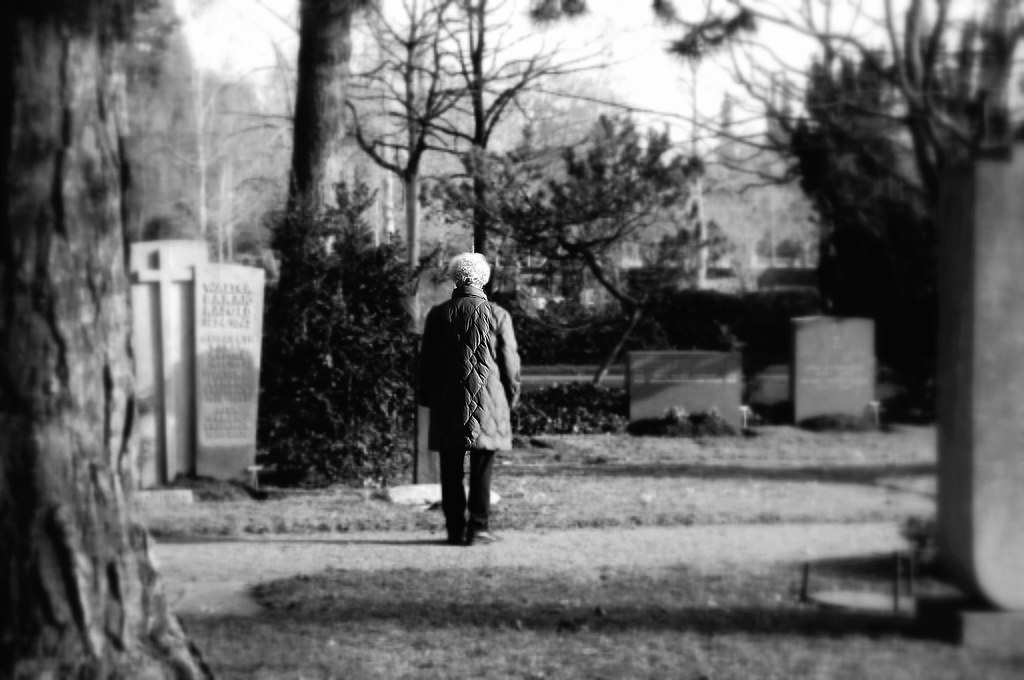
10. **A Father-Son Legacy: Collaborations with Crispin Glover**The bond between Bruce Glover and his son, acclaimed actor and director Crispin Glover, transcended personal relationship, evolving into a remarkable artistic collaboration that enriched both their careers. Their shared passion for the craft led them to work together on multiple projects, weaving a unique familial thread through Bruce’s later filmography and leaving a lasting testament to their mutual respect and creative synergy.
One of their most significant collaborations was the surreal drama “It Is Fine! Everything Is Fine.” (2007), which Crispin co-directed and in which Bruce delivered a compelling performance as ‘The Ex-Husband.’ This film was a profound artistic endeavor, showcasing Bruce’s willingness to engage in unconventional and challenging material, and Crispin’s vision to harness his father’s distinct talents in a unique cinematic context. It was a partnership born of deep understanding and trust.
Their collaborative spirit continued right to the very end of Bruce’s career, with his final acting credit being the 2015 film “Influence,” which also featured Crispin. This shared experience marked a poignant conclusion to Bruce’s extensive on-screen journey, symbolizing a full circle of artistic and familial connection. The opportunity to work together on screen underscored the profound respect they held for each other’s abilities.
Crispin Glover’s heartfelt tribute upon his father’s passing, shared on Instagram, included a series of personal and professional pictures, emphasizing the depth of their relationship. He captioned it simply: “Bruce Herbert Glover May 2, 1932 – March 12, 2025.” Bruce, in turn, praised Crispin as a “terrific director” in a 2019 interview, affirming their mutual appreciation: “In the long run, you know the love is there and the caring and the appreciation of each of us and our talents. So again, Crispin was great to work with.” There is even an untitled movie, directed by Crispin and starring Bruce, listed on IMDb as being in post-production, further hinting at their profound creative partnership.

11. **Unforgettable Lines: Bruce Glover’s Memorable Quotes**Beyond his distinctive performances, Bruce Glover left an imprint through several memorable lines and candid reflections that offer insight into his characters and his own perspective on life and acting. These quotes, often imbued with his unique blend of dark humor and profound observation, encapsulate the essence of his powerful presence both on and off screen.
One of his most iconic moments came in “Diamonds Are Forever” when his character, Mr. Wint, chillingly asks Mr. Kidd, “If at first, you don’t succeed, Mr. Kidd?” This line, delivered with sinister calm, perfectly captured the unsettling dynamic of the villainous duo. Glover’s creative input also led to one of the film’s biggest laughs, as he recounted to The Original Van Gogh’s Ear Anthology website: “The final moment in the film where Sean Connery does that rude thing pushing the hooha up my yaha and giving that character his final great sexual moment is the biggest laugh in the movie.”
His reflections on his early life and career also provide telling insights. When recalling his first job delivering groceries at age six, he described it as “the beginning of the seeking of work,” highlighting an early instilled work ethic that defined his pursuit of roles throughout his life. Similarly, his musings on his acting philosophy, such as his desire to “connect with something live” in his performances, reveal a deep commitment to organic and authentic expression.
Even in his self-assessment, Glover’s unique voice shone through. His statement to Entertainment Weekly, “I am really a very talented actor and I think differently from most actors,” perfectly encapsulates his distinctive approach to character. These quotes, whether from his films or his interviews, serve as lasting reminders of the sharp wit and thoughtful depth that Bruce Glover brought to every aspect of his remarkable career.

12. **Industry Recognition and Broader Impact**Bruce Glover’s career, while often characterized by supporting roles, had a far-reaching impact on the entertainment industry, solidifying his status as one of Hollywood’s most respected character actors. His influence extended beyond individual performances, shaping the landscape of villainy in popular culture and providing a masterclass in the art of the nuanced tough guy. His work resonated deeply with peers and audiences alike, earning him enduring admiration.
The iconic portrayal of Mr. Wint in “Diamonds Are Forever” set a benchmark for memorable henchmen, a testament to Glover’s meticulous and unique interpretation that blended menace with unsettling charm. This role, in particular, left an indelible mark on the James Bond franchise and beyond, influencing how sinister duos could be crafted in action thrillers. His contribution was not just a performance, but a template for character development.
Throughout his vast filmography and extensive television career, Glover was known for adding an essential layer of grit and realism to countless dramas and crime shows. His ability to embody morally ambiguous figures, from a motorcycle gang leader in “Adam-12” to an icy enforcer in “Chinatown,” earned him a reputation for delivering authenticity. He consistently elevated supporting roles, making them integral to the narrative fabric of successful productions.
His dedication to his craft was further recognized by industry colleagues and fans, with tributes pouring in upon his passing. Director Donald Farmer affectionately remembered him on Facebook as “a tremendous actor but a wonderful acting teacher and Facebook friend.” Such sentiments underscore Glover’s broader impact as both a performer who enriched the screen and a mentor who fostered new talent, cementing his legacy as a true Hollywood veteran whose contributions transcended the spotlight.
Read more about: Drivers Are Seriously Done: The 12 Worst Car Trends of the Decade (and Beyond!) That Need to End Now

13. **An Enduring Legacy: Tributes and Final Reflections**Bruce Glover’s distinguished life and career concluded on March 12, 2025, when he passed away at the age of 92 in a Los Angeles hospital. His death, confirmed by his son Crispin Glover on Instagram on March 29, marked the end of an era for a character actor whose unique presence and profound dedication left an undeniable mark on Hollywood. A representative for Crispin Glover later clarified that Bruce passed away from natural causes, offering a peaceful close to a remarkable journey.
The announcement of his passing prompted an immediate outpouring of condolences and tributes from across the industry and his fanbase. Colleagues like Lea Thompson, Crispin’s “Back to the Future” co-star, expressed heartfelt sympathy, while actress Tané McClure fondly recalled working with him and receiving his coaching, highlighting his generous spirit. Fans shared personal anecdotes, recalling encounters and expressing gratitude for the joy his performances brought them, illustrating the deep connection he forged with his audience.
Bruce Glover is survived by his two sons, Crispin Glover and Michael Leigh Glover, continuing a family lineage deeply rooted in the arts. His wife, actor and dancer Betty Krachey, predeceased him in 2016. Though he is gone, the vast body of work he leaves behind – from iconic villainy in blockbuster franchises to subtle, gritty performances in critically acclaimed dramas – ensures his memory and impact will persist for generations.
Read more about: A Timeless Legacy: The Fashion World Unites in Tributes to the Enduring Genius of Giorgio Armani at 91
Glover’s legacy is not merely defined by the roles he played, but by the authenticity he brought to each one, his unwavering commitment to his students, and the profound influence he had on both the craft of acting and the lives of those he touched. He was a master of his art, a dedicated mentor, and a truly unforgettable presence whose distinct contributions will continue to be celebrated, embodying the true spirit of a Hollywood veteran.



